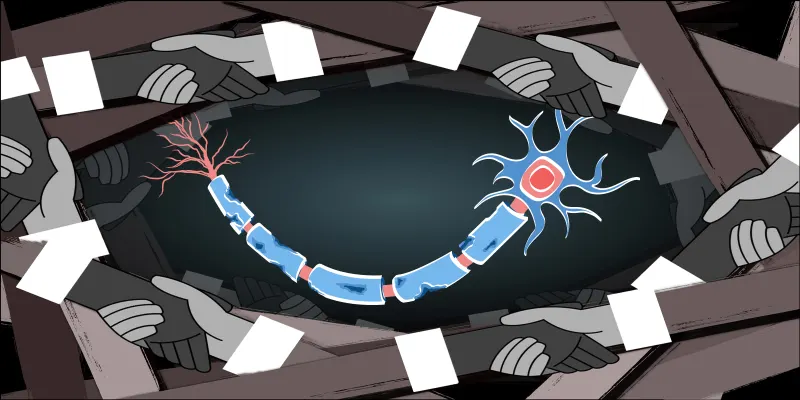For a Latina in medicine, representation is everything. How can you be what you cannot see?
Latinas account for only ~2% of the physician workforce in the U.S. As a result, it is exceptionally important to join and participate in affinity organizations. I recently had the privilege of volunteering for the Women in Medicine Summit (WIMS), an annual conference led by Dr. Shikha Jain with the goal of women empowerment and gender parity in medicine.
At the pre-conference for medical student attendees, Dr. Chelsea Dorsey spoke about the lack of racial and gender diversity in medicine at every level, especially in positions of senior academic leadership. As the Associate Dean for Medical Student Academic Advising and Advancement for the Pritzker School of Medicine in Chicago, Dr. Dorsey is a known champion of diversity, equity, and inclusion efforts at every stage of training.
According to the American Medical Association, increasing representation of racial, ethnic, and gender diverse physicians improves health care experiences and outcomes for historically marginalized populations. To correct this disparity and improve patient health outcomes, the number of admitted students who are historically underrepresented in medicine is increasing. However, we still have a long way to go to alleviate the disparity that currently exists. For instance, if we double the number of Hispanic, Black, and American Indian/ Alaska Native matriculants (AI/AN) to medical school, it would still take 92 years, 66 years, and 51 years, respectively, to achieve a physician workforce that is representative of the general population.
Hearing these harrowing statistics, my shoulders tensed and my breathing became shallow as if a weight is on my chest. The declarations that “you are our next leader” compound this feeling.
We are told that leadership and success in medicine are accomplished through mentorship. Dr. Dorsey clarifies that it may be challenging to find mentors who look like you or share your cultural background. She recommends finding an array of mentors who are interested in your story, and are committed to fostering your professional growth and success. Collecting a cabinet of diverse mentors is the first step. The next steps are as follows: refute external biases and perceived constraints of leadership, listen to predecessors and colleagues, steer clear of toxicity when you can, and focus on the impact that you can make in your role.
This sentiment is echoed by Dr. Monica Vela, the Director of the Hispanic Center of Excellence (HCOE) at the University of Illinois College of Medicine. At the WIM Summit, Dr. Vela spoke about the value of self-reflection when making big career decisions. How can we expect our cabinet of trusted advisors to offer sound advice if we do not reflect on our reasons for wanting change? We must first ask ourselves, “Whose narrative are we following?” Are we aspiring to leadership to fulfill an outdated personal narrative, meet societal expectations, or is it truly what we want? To better answer these questions, Dr. Vela suggests following her GIFT method of reflection outlined below:
Geographic Narrative
- Has isolation from family or friends become a burden?
- Will my physical or mental health benefit from being in a different geographic region?
- Is there a region where my culture, language, and intersecting identities will have added value?
- Am I mobile?
Institutional Narrative
- Is my institution’s mission aligned with my own?
- Has my personal or professional growth stalled?
- Is my work valued in a substantive way?
- Do I experience fulfillment, agency, autonomy, and opportunities to be creative?
- Am I experiencing bias, discrimination, or harassment?
Financial Narrative
- Has my salary kept up with my expertise, metrics, the economy, and my needs?
- What has been the reaction when I have asked for increases or changes?
- If not now, are there opportunities in the future?
Transformational Narrative
- Are there opportunities to not only advance my career but to transform my career?
- Have I or others limited my opportunity to explore transformation? (e.g., Transform from a clinician to a clinician educator, or clinician educator to researcher, from a researcher to administrator, etc.)
Although this systematic approach is intended for self-reflection during a big career transition, I plan to use this tool (and others), to regularly assess if my personal and professional needs are being met while in training. Routine self-reflection can alleviate feelings of inadequacy, stress, and burnout, which particularly impact folks who are historically and systematically minoritized.
As an underrepresented physician-in-training, reaching out to mentors and joining affinity organizations (e.g., WIMS, Latino Medical Student Association, etc.) are integral to my professional and academic success. Moreover, the act of fostering support systems contributes to my personal well-being and staves off feelings of burnout and helplessness. However, an individual’s efforts to increase representation and community is only one piece of the puzzle. Other public policy and institutional efforts are needed to support the creation and expansion of pipeline programs, medical schools that prioritize the education of Latine/Hispanic, Black, and AI/ AN populations, as well as the recruitment and retention of Latine/Hispanic, Black, and AI/AN faculty in leadership positions.
Jessica Pilar Sejo is a medical student at the University of Illinois College of Medicine. She is interested in health equity, reproductive justice, and ceramic wheel throwing. You can follow her on Twitter (X) @jessicasejo
Image by z_wei / Getty Images





